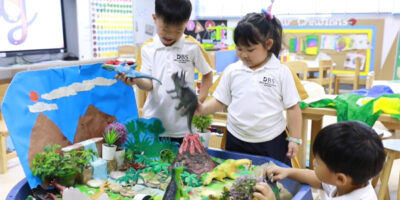
- ABOUT US
- SCHOOL LIFE
- ADMISSIONS
- CALENDAR
- CONTACT US
- PARENT
- EVENTS
Play is multi-sensory – engaging children’s minds, bodies and emotions, and it leads to valuable skills:
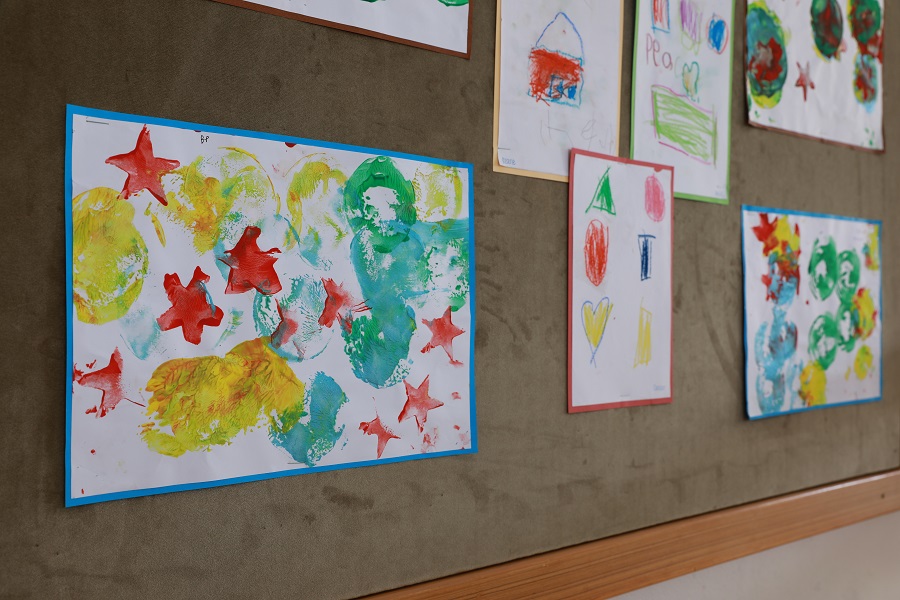
Creativity – Play gives children’s imaginations a chance to come to life! Children who explore new toys using their own imaginations tend to be more creative in the long term. And those who are more creative tend to be better communicators.
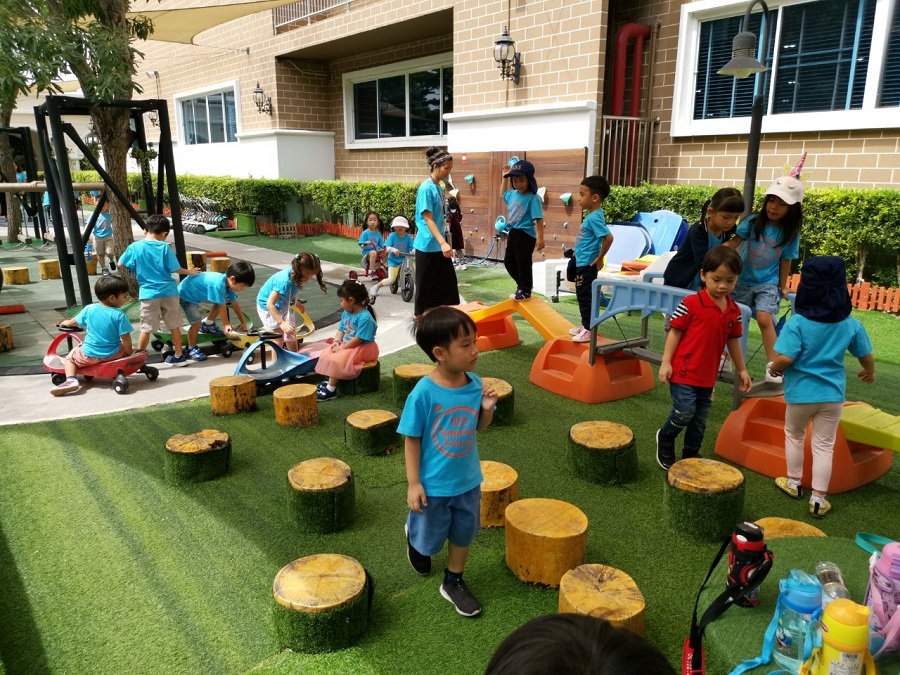
Social – Pretend play allows children to learn how to behave in socially appropriate ways and teaches them how to create and maintain friendships. Role play helps them learn how to collaborate and compromise with others, recognise and respond to others’ feelings, share, show affection, resolve conflicts, and adhere to the rules. research shows that the better social skills a young child has, the better they will be doing academically when they reach Senior School.
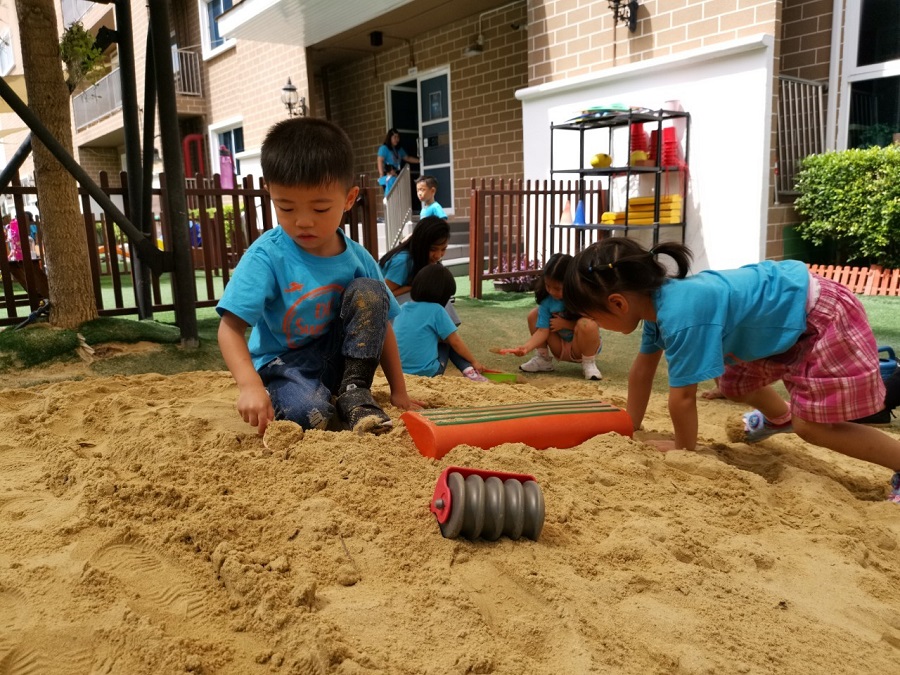
Physical Development – Through pretend play children are moving themselves around, manipulating objects and practising fine motor skills. They are pushing trolleys and learning about their strength and coordinating arms and legs, not to mention balance! They are pretending to be cashiers and picking objects of various shapes and sizes up practising fine-motor skills.
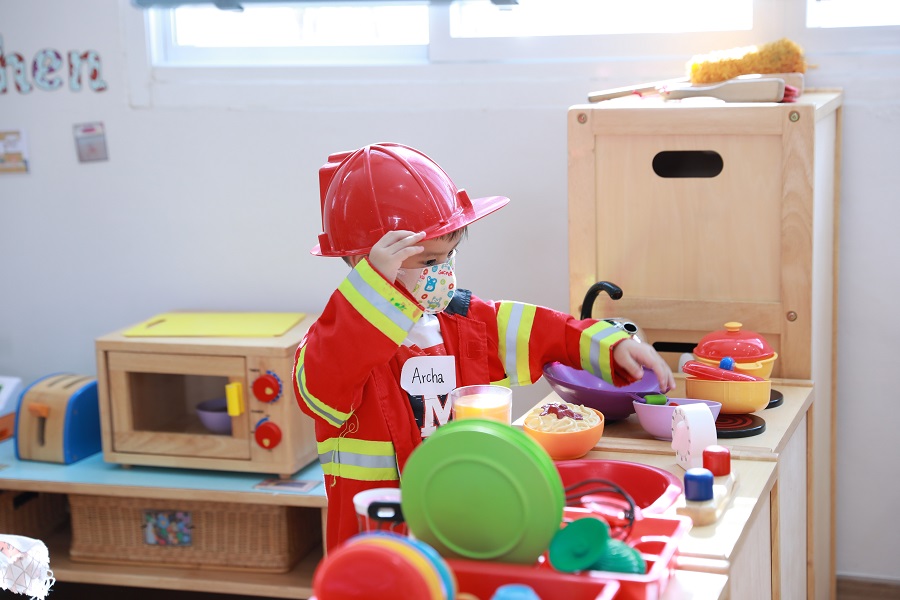
Emotions – Through play, children learn to cope with their emotions as they act out fear, frustration, anger and aggression in a situation they control. It’s also a chance for them to practise empathy and understanding. By giving children a sense of accomplishment and satisfaction, play can help build children’s confidence and self-perception.
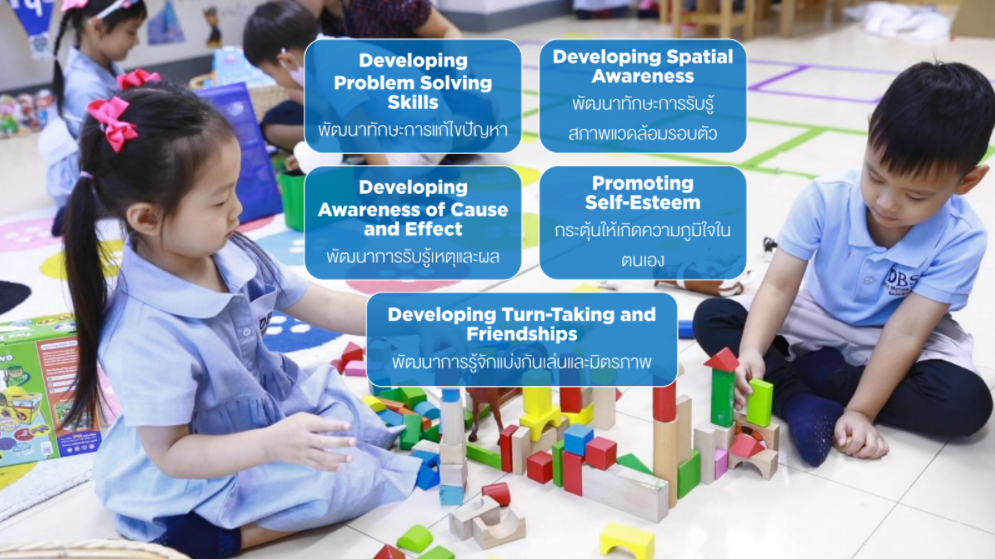
Block Play: Block play offers an open-ended, creative and valuable play and learning experience. It offers children freedom – to explore, take apart and put back together any block-based creation they can think of. There are a host of benefits to be gained from this activity: imagination, problem solving, maths, physical development, and creativity.
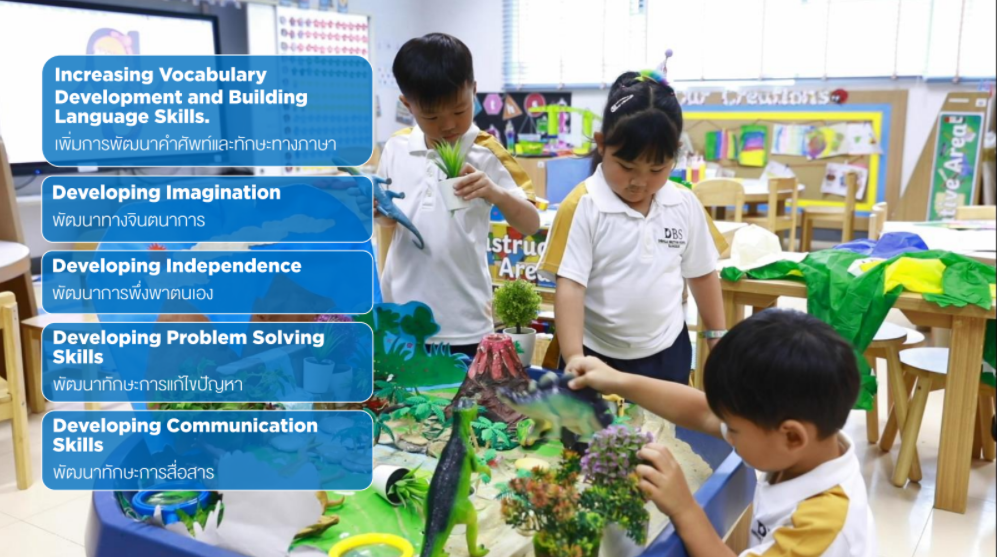
Small World: Small world play refers to imaginative play with ‘small’ toys, encouraging children to use their imaginations and create both everyday and fantasy worlds in familiar surroundings. It involves processes including active learning and imitation, and allows children to communicate knowledge about life and the world around them in a safe, contained environment. Whether it’s acting out a well-known home scene, or fighting a dragon in a fantasy world; small world play enables children to develop socially, physically and intellectually.
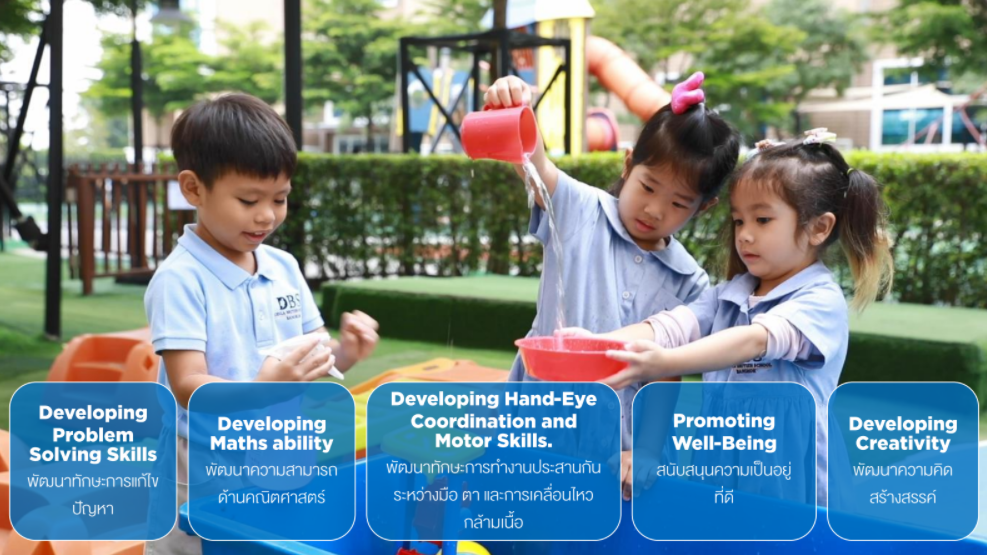
Water Play: Water play fosters learning in all developmental areas. It provides opportunities for children to experiment with math and science concepts, strengthen their physical skills, advance their social and emotional skills, and enhance language development. As children manipulate water play materials, they begin to understand why and how things happen. For example, given sinking and floating objects, a child will soon discover that just because something is large in size does not mean it will sink.
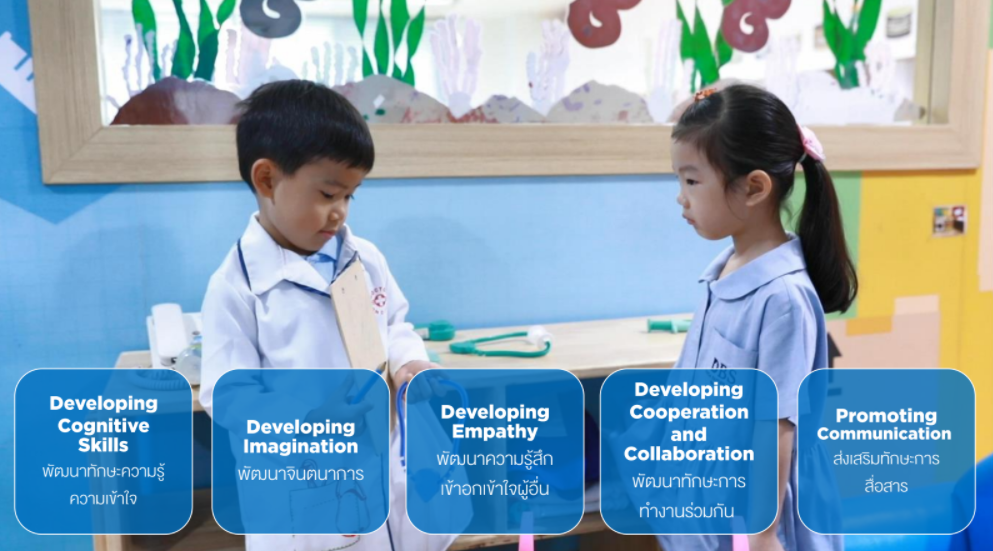
Role Play: Simply, role play is pretending to be someone/something else. Children love to dress up and pretend. They develop their social skills, imagination and have the freedom to test the world in a safe environment, using new vocabulary that they have learned from parents or in school.
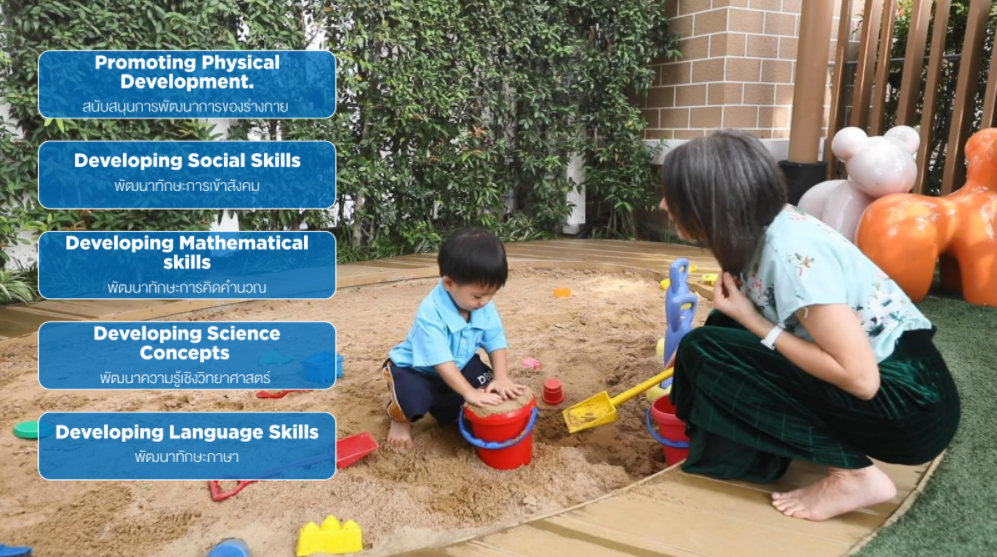
Sand Play: Children are naturally drawn to sand. But what are the benefits? It’s a wonderfully social activity where children talk together, carry out plans and dig and create. They use their gross motor skills whilst carrying heavy buckets, digging, shovelling and scooping.
Our teachers in the EY department know how to play with the children to move their learning forward. They know how to interact and to ask the best questions to challenge the children’s thinking. As children move through the EY and as the children are ready we introduce more adult led activities which mean that when a child leaves our EY department, they are beginning to write, read complete maths activities.